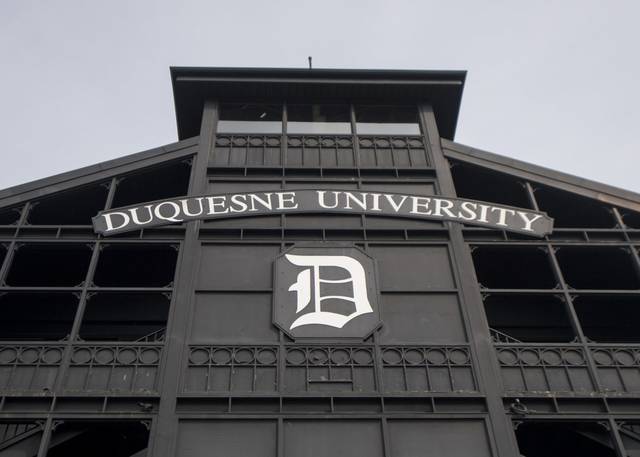https://triblive.com/local/westmoreland/as-covid-19-surges-pennsylvania-colleges-urged-to-delay-the-start-of-spring-semester/
As covid-19 surges, Pennsylvania colleges urged to delay students’ return

Citing “an alarming increase in covid-19 cases” and yet another surge expected to peak in January, Pennsylvania acting Secretary of Education Noe Ortega on Wednesday urged colleges and universities to delay the start of their spring semester.
Ortega also suggested colleges and universities use virtual instruction as much as possible.
“We are seeing an alarming increase in covid-19 cases and hospitalizations, and these trends are expected to worsen in January at the time when students normally return to campus,” Ortega said. “By delaying students’ return to campus, our institutions of higher learning can help slow the spread of the virus, help businesses to remain open, and protect regional health care systems.”
Ortega’s guidance came one week after Seton Hill University President Mary Finger announced the Greensburg university would delay the start of its spring semester, originally scheduled to begin Jan 19, until Feb. 2.
Finger said student safety was a top consideration at the university that enrolls about 2,200 students. She noted recent reports put community transmission of covid-19 in Westmoreland County at about five times what is considered “substantial spread” in a community.
“Public health experts warn that this surge will continue through and after celebrations around Christmas and New Year’s Day with a peak in mid-January,” Finger said in a letter to the university community.
Seton Hill’s rollback mirrored one that Carnegie Mellon University announced in late September, when it pushed the start of the spring semester at its Pittsburgh campus to Feb. 1 to avoid having students on campus at a time when the flu and covid-19 are expected to peak.
Like Seton Hill and Carnegie Mellon, many colleges and universities canceled spring break. At the University of Pittsburgh, which plans to offer in-person and online classes, instruction begins Jan. 19, with no spring break. Officials at Saint Vincent College in Unity, which also is offering in-person and online classes, announced plans to push back the start of spring semester to Jan. 25 and canceled spring break.
“These plans are under constant review, however, and with the ever-changing challenges posed by the pandemic, our administration is prepared to reevaluate the situation as circumstances dictate,” Saint Vincent spokesman Jim Berger said.
Although local colleges and universities had no advance notice of Ortega’s new guidance, most have planned for the coming year with contingencies for student safety in mind.
Duquesne University spokesman Gabe Welsch said the semester will begin Jan. 21. Like Pitt, Duquesne operated on a hybrid system this fall.
“So, if we had to go online initially, we could do that,” Welsch said.
Additionally, Duquesne announced all students planning to be on campus during the spring semester must take a coronavirus test and have a negative result no earlier than five days before returning to campus.
At California University of Pennsylvania, which opted to go almost entirely online this fall, officials announced plans to bring some students back to the Washington County campus this spring and will offer online and in-person classes.
Cal U spokeswoman Christine Kindl said classes begin Jan. 25 and continue without a spring break.
“Although, we are monitoring things and keeping an eye on the situation,” Kindl said.
State officials said Pennsylvania’s experience with residential campuses this fall, coupled with the ongoing surge in covid-19 cases and hospitalizations, prompted the additional guidance for the coming semester.
Epidemiological modeling suggests the surge in infections will not peak until January and February. And state officials said the number of new daily cases have increased tenfold since students returned to campuses in the fall.
Ortega said the number of cases among 19- to 24-year-olds in Northcentral Pennsylvania spiked from 7% in April, when students were not on campus, to 69% in September; and in the Northeast from 6% in April to 40% in September.
At Point Park University in Pittsburgh, where classes are scheduled to resume Jan. 19 with no provisions for spring break, officials believe their plans are flexible enough to comply with the state’s guidance.
Back at Seton Hill, which invited all of its students back to campus last fall, university spokeswoman Jennifer Reeger said the school added more surveillance testing to ensure staff and student safety.
Copyright ©2026— Trib Total Media, LLC (TribLIVE.com)
